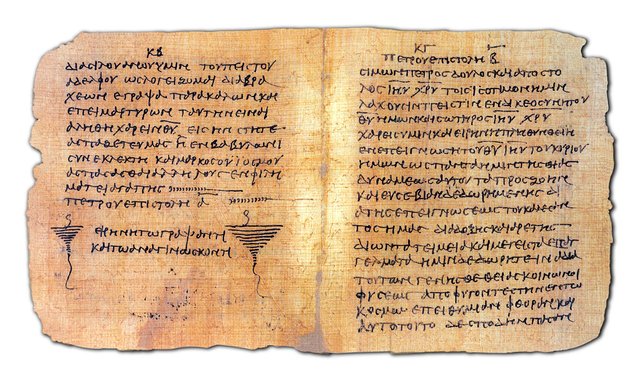When the Roman writer Pliny the Younger heard about the year AD 100 that his works were to be bought in the Gallic city of Lugudunum, today's Lyon, he remarked in surprise, "I did not know that Lugudunum had bookshops at all gives! "But he was pleased that he was valued by the provincial dwellers as well as by the city-gentry. The prerequisite for a provincial town that had been founded only half a century ago, so to speak, was the newcomers in the shop window, was a well-organized bookstore that supplied the countries of the Roman Empire from the capital.
Duplication in the copy-room
The beginnings of a professional book and publishing business in Rome go back to the first century BC. Cicero complains about the bad, flawed copies of Greek works; but then he found in his friend Titus Pomponius Atticus a called patron, in a sense his publisher. Atticus, nicknamed him from his long stay in Athens and his generous endowments, was a friend of literature and science, and at the same time a capable businessman. So he was not satisfied with the usual copying of texts by individual house slaves; he created a rational copying system.
Prior to their quality-tested texts were dictated in several rooms each a plurality of writers, the copies were checked again before they took their way to the readership. Whether Atticus, who looked after other Roman writers in addition to Cicero as Marcus Terentius Varro, a veritable publishing house operated as a business or whether he provided only good manuscripts for interested parties, is not easy to clarify. The brothers Sosius, who looked after Horace, were quite commercial. They copied his manuscripts and sold them, so they were publishers. The poetry should be taught and entertained, says Horace in his Ars Poetica, the Versepistel on poetry, and, he thinks, a book that gives the reader pleasure and yet depth, that is generally applauded and fills the books of the brothers Sosius It also takes the path across the sea and ensures a long afterlife for its well-known author. Often, the bestselling author had to console himself with his popularity, because there was neither a copyright nor a publishing right. Everyone could make a copy, as they do today.

